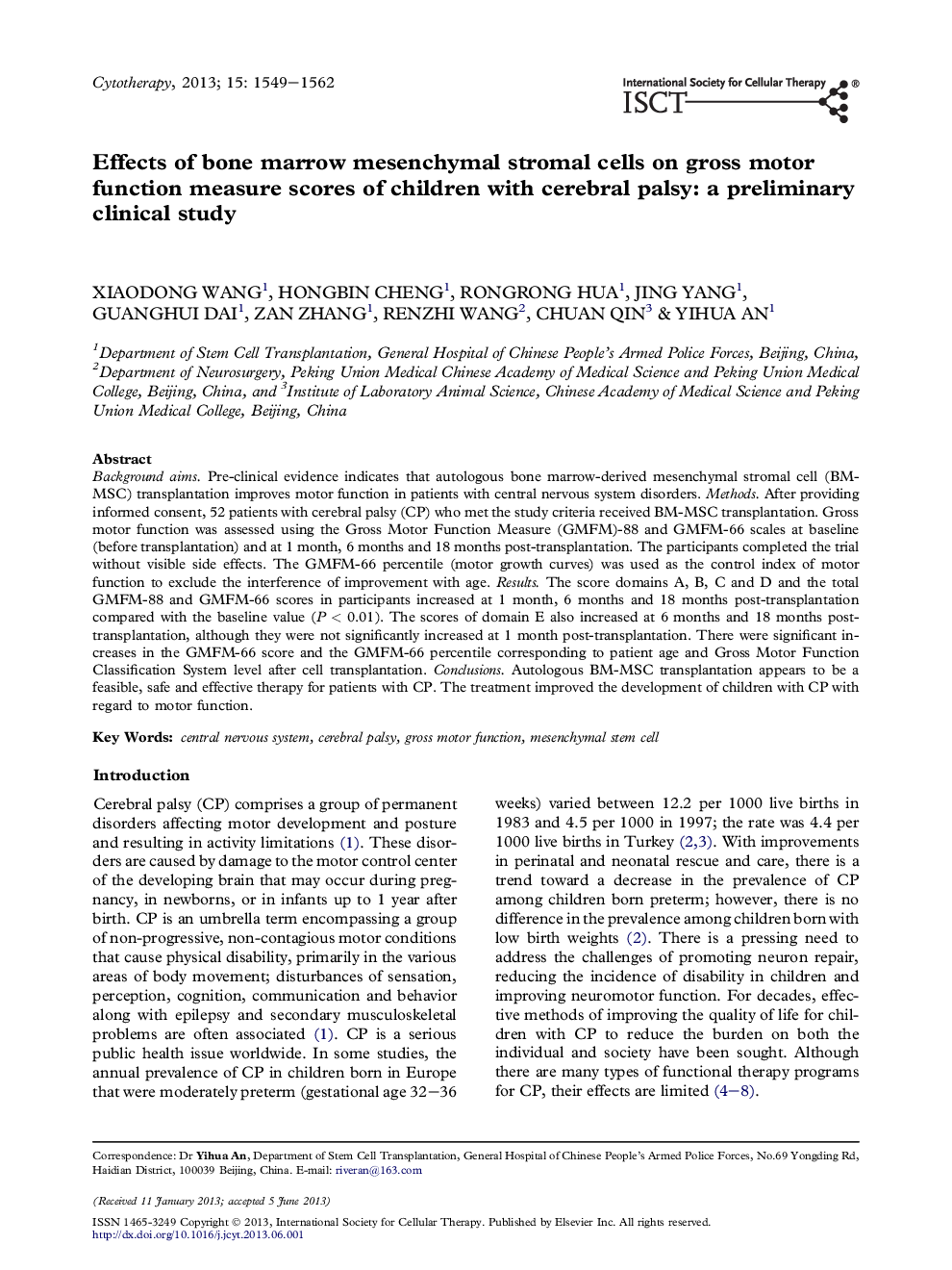| Article ID | Journal | Published Year | Pages | File Type |
|---|---|---|---|---|
| 2172338 | Cytotherapy | 2013 | 14 Pages |
Background aimsPre-clinical evidence indicates that autologous bone marrow-derived mesenchymal stromal cell (BM-MSC) transplantation improves motor function in patients with central nervous system disorders.MethodsAfter providing informed consent, 52 patients with cerebral palsy (CP) who met the study criteria received BM-MSC transplantation. Gross motor function was assessed using the Gross Motor Function Measure (GMFM)-88 and GMFM-66 scales at baseline (before transplantation) and at 1 month, 6 months and 18 months post-transplantation. The participants completed the trial without visible side effects. The GMFM-66 percentile (motor growth curves) was used as the control index of motor function to exclude the interference of improvement with age.ResultsThe score domains A, B, C and D and the total GMFM-88 and GMFM-66 scores in participants increased at 1 month, 6 months and 18 months post-transplantation compared with the baseline value (P < 0.01). The scores of domain E also increased at 6 months and 18 months post-transplantation, although they were not significantly increased at 1 month post-transplantation. There were significant increases in the GMFM-66 score and the GMFM-66 percentile corresponding to patient age and Gross Motor Function Classification System level after cell transplantation.ConclusionsAutologous BM-MSC transplantation appears to be a feasible, safe and effective therapy for patients with CP. The treatment improved the development of children with CP with regard to motor function.
